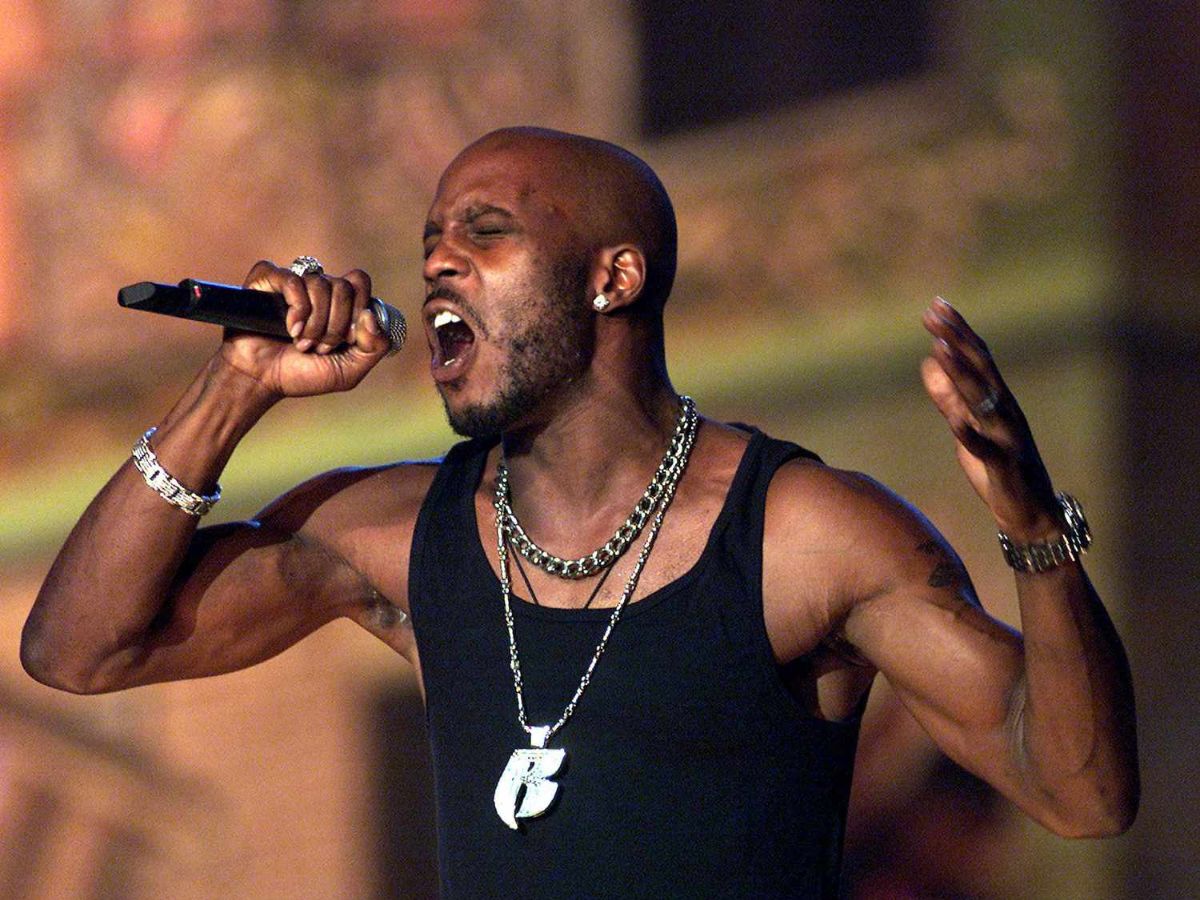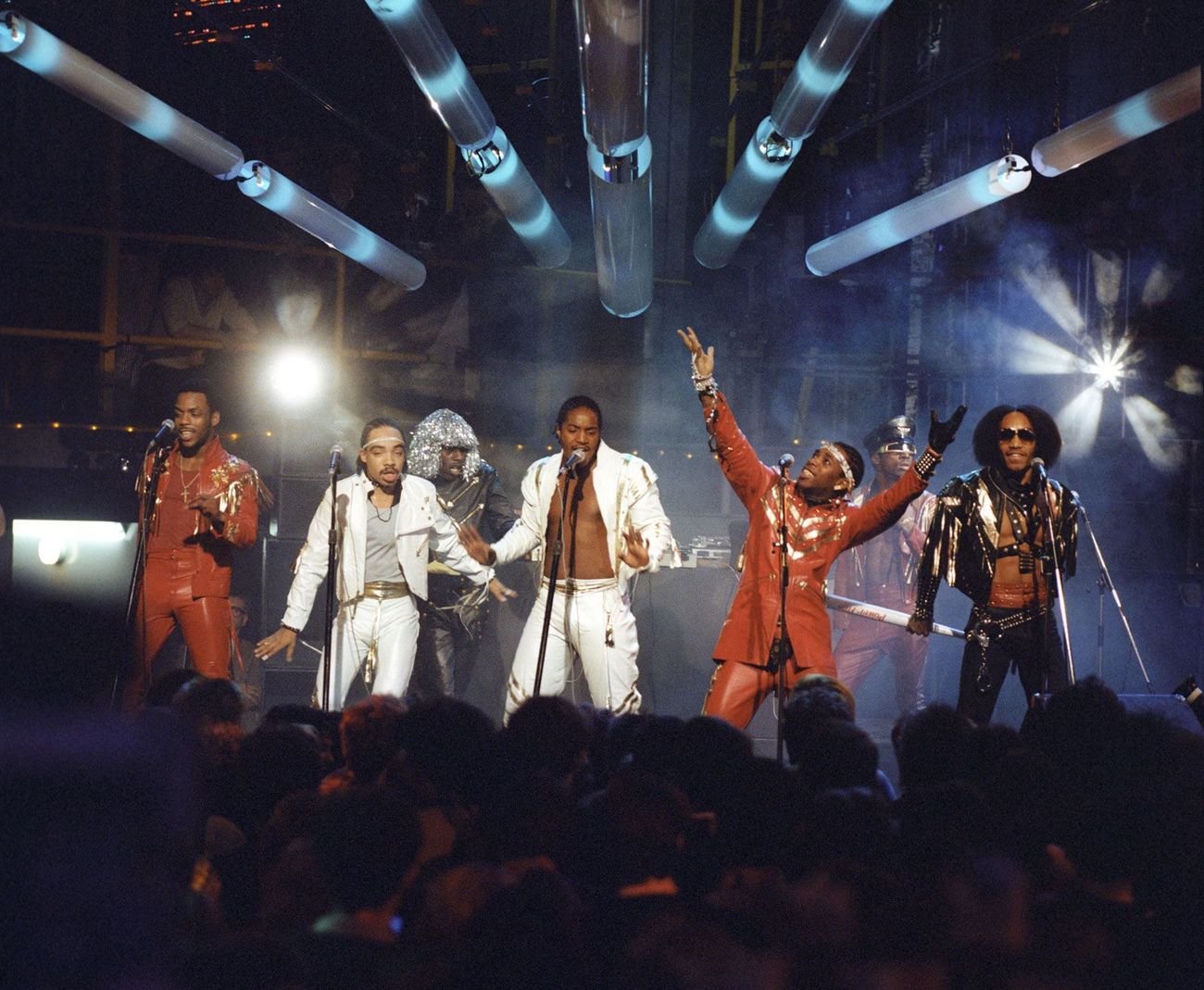

Hip Hop
What Influenced Hip-Hop
Modified: January 22, 2024
Discover the key influences that shaped the vibrant world of Hip Hop, from its origins in African music and Jamaican sound systems to its evolution into a global cultural phenomenon. Uncover the roots of Hip Hop today.
(Many of the links in this article redirect to a specific reviewed product. Your purchase of these products through affiliate links helps to generate commission for AudioLover.com, at no extra cost. Learn more)
Table of Contents
Introduction
Hip-hop is more than just a genre of music; it is a cultural movement that has shaped and influenced the world in many ways since its inception in the 1970s. From its roots in the African American and Latino communities of New York City, hip-hop has spread across the globe, becoming a powerful force that transcends boundaries of race, age, and nationality.
At its core, hip-hop represents a form of expression and empowerment for marginalized communities, giving a voice to those who have historically been silenced. It has evolved into a multi-dimensional art form that encompasses not only music, but also dance, fashion, visual art, and even language.
In order to understand the full impact of hip-hop, it is crucial to explore the various influences that have shaped its development. These influences can be categorized into social, historical, musical, cultural, political, and technological aspects. Each of these factors has played a significant role in shaping the sounds, styles, and messages of hip-hop.
This article aims to delve into the rich tapestry of influences that have contributed to the growth and evolution of hip-hop. By examining these influences, we can gain a deeper appreciation for the artistry and significance of this cultural phenomenon.
Social Influences
One of the most significant social influences on hip-hop is the environment in which it originated: the inner-city neighborhoods of New York City. These communities, characterized by poverty, crime, and social inequality, provided the backdrop for the birth of hip-hop. The struggles and realities of life in these neighborhoods served as a catalyst for the emergence of a new form of artistic expression.
Hip-hop became a means for young people to tell their stories and shed light on the social issues they faced. It provided a platform for marginalized voices to be heard and empowered individuals to share their experiences. The themes of poverty, violence, racism, and discrimination became recurring motifs in hip-hop lyrics, reflecting the social realities of urban life.
Another social influence on hip-hop is the concept of community and camaraderie. Rap battles, block parties, and cyphers served as spaces for artists to come together, share their skills, and build a sense of belonging. In a world that often marginalized them, hip-hop provided a sense of unity and solidarity.
Furthermore, hip-hop also served as a form of cultural resistance. It challenged the mainstream narrative and offered an alternative perspective on life and society. By embracing their own unique identities and cultural heritage, hip-hop artists celebrated diversity and rejected the assimilation often imposed on marginalized communities.
As hip-hop grew in popularity, it began to transcend boundaries of race, class, and nationality. It became a global movement that resonated with people from different backgrounds who could relate to its themes of struggle, resilience, and empowerment. Today, hip-hop continues to be a powerful social force, addressing contemporary issues such as police brutality, systemic racism, and political activism.
Historical Influences
Understanding the historical influences on hip-hop is essential to grasp its cultural significance and evolution. Several key historical events and movements have shaped the development of hip-hop as we know it today.
One of the crucial historical influences on hip-hop is the Civil Rights Movement of the 1960s. This era marked a pivotal moment in the fight for racial equality and social justice in the United States. The movement’s emphasis on self-empowerment, resistance, and the pursuit of equal rights deeply resonated with the rising hip-hop culture.
The post-industrial decline and urban decay of cities like New York in the 1970s also played a significant role in the birth of hip-hop. As areas became marked by poverty, violence, and neglect, the youth sought refuge in creative outlets. Hip-hop emerged as a form of expression that allowed young people to reclaim their neglected communities and voice their frustrations.
The influence of African and Caribbean cultures on hip-hop cannot be overstated. The African diaspora brought rich musical traditions, rhythms, and storytelling techniques that heavily influenced the rhythm and lyricism of hip-hop. From West African drumming to Jamaican sound system culture, these cultural roots are evident in the beats, cadences, and melodic elements of hip-hop.
Furthermore, the legacy of Black music, such as blues, jazz, funk, and soul, forms the foundation of hip-hop. Artists like James Brown, Marvin Gaye, and Gil Scott-Heron laid the groundwork for the use of samples and musical techniques that would become staples of hip-hop production.
Additionally, the rise of disco in the 1970s had a profound impact on hip-hop. The DJ culture that emerged from disco clubs heavily influenced the development of hip-hop’s DJing techniques, including beatmatching and scratching. Disco’s emphasis on dance, rhythm, and nightlife also intersected with the energetic and celebratory spirit of early hip-hop.
Lastly, the advent of the internet and the digital age in the late 20th century has had a transformative impact on hip-hop. It enabled the democratization of music production, distribution, and promotion, allowing independent artists to reach audiences worldwide. The internet also facilitated the growth of online communities and platforms that have shaped the dynamics of hip-hop culture.
In summary, historical influences on hip-hop encompass the Civil Rights Movement, urban decay, African and Caribbean cultures, the legacy of Black music, disco, and the digital age. Understanding these historical contexts helps us appreciate the cultural significance and evolution of hip-hop as a reflection of the times and a vehicle for social change.
Musical Influences
Musical influences have played a crucial role in shaping the sound and style of hip-hop. While hip-hop itself emerged as a unique genre, it drew inspiration from various musical genres and styles that came before it.
One of the fundamental musical influences of hip-hop is funk music. Artists like James Brown, Parliament-Funkadelic, and Sly and the Family Stone not only provided infectious grooves but also laid the foundation for hip-hop’s emphasis on rhythm and danceability. The syncopated beats, basslines, and horn sections of funk music became ingrained in the DNA of hip-hop, influencing its production and creating a distinct sonic identity.
Another influential genre is jazz. Jazz’s improvisational nature, complex harmonies, and virtuosic performances have had a significant impact on hip-hop. Hip-hop artists often sample jazz records, incorporating elements such as horn sections, piano melodies, or drum breaks, to add depth and musicality to their tracks. Jazz’s spirit of creativity and experimentation can also be seen in the freestyle and improvisational aspects of rap.
Soul music has also heavily influenced hip-hop. Artists like Otis Redding, Aretha Franklin, and Marvin Gaye brought emotional depth, powerful vocals, and storytelling to their music. Hip-hop artists have sampled soul records extensively, using soulful hooks, vocal samples, and melodic fragments to create memorable and soul-stirring tracks.
Sampling is a key characteristic of hip-hop, and it draws influences from a wide range of musical genres. From rock and pop to reggae and electronic music, hip-hop artists have borrowed and reimagined various musical elements to create their own unique sounds. Sampling allows hip-hop to connect with a rich musical heritage while adding a contemporary twist.
In addition to genres, specific artists and albums have had a profound impact on hip-hop. The influential works of artists like Michael Jackson, Bob Marley, and Prince have been sampled and referenced by countless hip-hop artists. Their innovative approaches to music, fearless creativity, and ability to transcend boundaries resonate with hip-hop’s ethos of breaking barriers and pushing boundaries.
Furthermore, hip-hop has also been shaped by the evolution of technology in music production. From the use of drum machines and samplers in the early days to the digital production tools available today, technology has played a vital role in shaping the sound of hip-hop. The experimentation with innovative production techniques and the fusion of different musical elements can be credited, in part, to advancements in music technology.
Overall, the musical influences on hip-hop are diverse and multi-faceted. From funk and jazz to soul and the use of sampling, hip-hop has incorporated elements from various genres and artists to create its unique sonic landscape.
Cultural Influences
One of the defining characteristics of hip-hop is its cultural influences. Hip-hop is more than just music; it is a vibrant and dynamic culture that encompasses various elements and values.
A significant cultural influence on hip-hop is the African and African American heritage. The rhythms, storytelling traditions, and oral history of African cultures form the foundation of hip-hop’s lyrical and musical expression. The African diaspora experience, with its struggles, resilience, and cultural pride, resonates throughout hip-hop’s themes and messages.
Another cultural influence is the urban street culture from which hip-hop emerged. The fashion, language, and attitude of the streets became integral components of hip-hop’s identity. From baggy clothing and sneakers to graffiti art and breakdancing, hip-hop culture embraces and celebrates the aesthetics and experiences of urban life.
Hip-hop is deeply rooted in the concept of community and the importance of authentic self-expression. It emphasizes the idea of “keeping it real” and staying true to one’s authentic voice and experiences. This cultural value encourages artists to speak their truth and share their personal stories, leading to a sense of connection and relatability among audiences.
The concept of battles and competition is another cultural influence on hip-hop. Rap battles, dance-offs, and DJ competitions have been integral to the hip-hop culture from its early days. These competitive elements provide a platform for artists to showcase their skills, creativity, and lyrical prowess, pushing the boundaries of their craft and inspiring innovation.
Moreover, hip-hop culture has always been politically and socially aware. From its inception, hip-hop has provided a voice to marginalized communities, addressing issues of social injustice, inequality, racism, and police brutality. It has served as a platform for political commentary and activism, empowering artists to use their music and influence to effect change.
The influence of hip-hop extends beyond the borders of the United States. As it has spread globally, it has absorbed and been influenced by various local cultures and subcultures. From the UK grime scene to French rap and Japanese hip-hop, the cultural influences of different regions have enriched the global hip-hop landscape, making it a truly worldwide phenomenon.
Furthermore, the rise of hip-hop as a dominant cultural force has also resulted in the commercialization and commodification of its elements. Fashion brands, corporations, and mainstream media have co-opted hip-hop aesthetics and culture, leading to questions of authenticity and cultural appropriation within the hip-hop community.
In essence, the cultural influences on hip-hop are diverse and far-reaching. Its roots in African and African American heritage, street culture, authenticity, community, competition, political awareness, and global diffusion have shaped the vibrant and multifaceted culture that we know today.
Political Influences
One of the defining characteristics of hip-hop is its political consciousness and its ability to convey powerful social and political messages. Hip-hop evolved as a form of resistance and empowerment for marginalized communities, allowing them to address political issues and challenge the status quo.
Political influences on hip-hop can be traced back to its roots in the social and economic struggles of inner-city neighborhoods. The lyrics of early hip-hop pioneers like Grandmaster Flash, Public Enemy, and N.W.A. reflected the harsh realities of urban life, shining a spotlight on issues such as poverty, racism, inequality, and police brutality.
Hip-hop became a platform for social commentary and political activism, using the power of words and music to shed light on systemic injustices and demand change. The lyrics of songs like “Fight the Power” by Public Enemy or “The Message” by Grandmaster Flash and the Furious Five directly addressed political and social issues, advocating for social justice and urging listeners to take action.
Furthermore, hip-hop played a significant role in raising awareness about political movements and events. Artists used their platforms to address specific issues like the war on drugs, the prison-industrial complex, and racial profiling. They also tackled larger societal issues such as systemic racism, police violence, gender inequality, and political corruption.
Political activism is not limited to the lyrics of hip-hop songs. Artists actively engage in community initiatives, social campaigns, and activism efforts. They use their influence to mobilize their fan base, encourage voter registration, and support grassroots organizations that work toward social change.
In addition, hip-hop has often been used as a platform for protest and resistance. From the Civil Rights Movement to Black Lives Matter, hip-hop artists have aligned themselves with political movements fighting for social justice. Through their music, performances, and public statements, they voice their support and solidarity with the movements they believe in.
The political influence of hip-hop is not limited to the United States. Hip-hop has become a global phenomenon, crossing borders and transcending language barriers. In different countries, artists use hip-hop as a vehicle to express political discontent, address local issues, and challenge oppressive regimes. From South Africa’s anti-apartheid movement to the Arab Spring in the Middle East, hip-hop has played a role in political uprisings and the fight for freedom.
However, it is worth noting that hip-hop’s political impact has also faced criticism and controversy. Some argue that the genre promotes negative stereotypes, glorifies violence and materialism, and fails to provide a comprehensive solution to the complex political issues it addresses. These debates within hip-hop highlight the dynamic and evolving nature of its political influence.
In summary, hip-hop’s political influences are significant and transformative. From addressing social and systemic issues to inspiring activism and protest, hip-hop has become a powerful force for political expression and social change on a global scale.
Technological Influences
Technological advancements have played a pivotal role in shaping the evolution and production of hip-hop music. From the early days of DJing to the digital era, technology has not only transformed the sound and style of hip-hop but also revolutionized the way it is created, distributed, and consumed.
One of the most significant technological influences on hip-hop is the invention and development of sampling technology. Sampling involves taking small portions of pre-existing audio recordings and incorporating them into new compositions. The advent of hardware such as the Akai MPC and software like digital audio workstations (DAWs) opened up endless possibilities for producers to manipulate and reconstruct sounds from various genres and eras.
Sampling technology allowed hip-hop artists to create unique compositions by combining elements from different musical sources. This technique not only shaped the sonic landscape of hip-hop but also became a tool for paying homage to past artists, creating connections across genres, and preserving musical history.
Another technological influence is the emergence of drum machines and synthesizers. In the early days of hip-hop, artists like Afrika Bambaataa and J Dilla utilized drum machines to create iconic beats and rhythms. The use of synthesizers added depth, texture, and futuristic elements to hip-hop production, expanding its sonic palette and pushing creative boundaries.
The rise of digital production tools and software has further revolutionized hip-hop music production. With the accessibility of computers, aspiring artists can create studio-quality productions in their own bedrooms. Digital audio workstations, virtual instruments, and plugins have made it easier than ever to produce professional-sounding tracks without the need for expensive studio equipment.
Moreover, advancements in technology have transformed the way hip-hop music is distributed and consumed. The Internet and the digital age have democratized the process, allowing independent artists to reach global audiences without traditional record labels. Platforms like SoundCloud, YouTube, and social media have become essential tools for self-promotion, connecting with fans, and building a following.
The influence of technology extends to the performance aspect of hip-hop as well. DJs have embraced technologies like MIDI controllers and digital vinyl systems (DVS), which allow for seamless and creative manipulation of music during live sets. These tools have expanded the possibilities for DJs to incorporate samples, loops, and effects into their performances, enhancing their dynamic stage presence.
Additionally, technology has transformed the way hip-hop culture is experienced and shared. The rise of social media, streaming platforms, and online communities has created new avenues for fans to access and engage with hip-hop content. It has also facilitated instant collaboration between artists from different locations, breaking down geographical barriers and fostering cross-cultural connections.
In summary, technological influences have been instrumental in shaping the sound, production, distribution, and performance of hip-hop. Sampling technology, drum machines, synthesizers, digital production tools, and online platforms have revolutionized the way hip-hop music is created, shared, and experienced, bringing new possibilities and creative avenues to the genre.
Conclusion
Hip-hop is an art form that has been shaped by a myriad of influences, spanning social, historical, musical, cultural, political, and technological realms. From its origins in the inner-city neighborhoods of New York City to its global reach today, hip-hop has evolved into a powerful cultural movement.
The social influences on hip-hop reflect the struggles and realities of marginalized communities, providing a platform for their voices to be heard. The historical influences trace back to pivotal movements and events that shaped the socio-political landscape in which hip-hop emerged. The musical influences range from funk, jazz, soul, and the sampling of various genres, creating a unique sonic tapestry.
Cultural influences have imbued hip-hop with a sense of community, authenticity, and self-expression, while political influences have made it a vehicle for social commentary, activism, and protest. Technological influences have transformed the production, distribution, and consumption of hip-hop music, allowing for creative innovation and global connectivity.
By understanding these influences, we can appreciate the power and significance of hip-hop as a cultural force. It serves as a platform for artists to express their realities, address social issues, and advocate for change. Hip-hop has the ability to unite people from diverse backgrounds, challenging barriers and fostering a sense of empowerment and solidarity.
As hip-hop continues to evolve and shape the musical and cultural landscape, it is essential to recognize and respect its roots and the influences that have contributed to its growth. By celebrating its rich tapestry of influences, we can deepen our understanding and appreciation of hip-hop as a resilient and dynamic art form.
Ultimately, hip-hop’s influences reflect the diverse and interconnected nature of our world. It embodies the struggles, aspirations, and creativity of its creators and resonates with audiences worldwide. Hip-hop is more than just music; it is a reflection of the times, a voice for the voiceless, and a cultural movement that continues to evolve and inspire.











